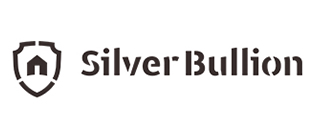Navigate
Article List
- Editorial
By Albert Cheng, CEO, SBMA
- The Effects of Covid-19 on Australia’s Precious Metals Market
By Bron Suchecki, Senior Precious Metals Project Analyst, Pallion
- Will Covid-19 Slow Gold Production in Russia?
By Sergey Kashuba, Chairman, Union of Gold Producers of Russia
- Consumer Behaviour Towards Gold Jewellery in Indonesia
By Jennifer Heryanto, Chief Executive Officer, SKK Jewels
- Korea’s Gold & Jewellery Market
By Da Young Kim, Senior Researcher, Wolgok Jewelry Research Center
- Feature | Gold Rush 2.0: Australia to Become World’s Biggest Gold Producer
By Shae Russell, Chief Editor, The Daily Reckoning Australia
- Special Focus | Japan Bullion Market Association
By Bruce Ikemizu, Chief Director, Japan Bullion Market Association
- Global Overview of Precious Metal Logistics
By Allan Finn, Director of Global Commodities, Malca-Amit
- Gold Demand Trends and The Impact of Covid-19
By Andrew Naylor, Head of ASEAN and Public Policy, World Gold Council
- Road Toward $2,000+ Gold Set to Be a Bumpy One
By Bart Melek, Global Head of Commodity Strategy, TD Securities
- SBMA News
By Albert Cheng, CEO, SBMA
Article List
- Editorial
By Albert Cheng, CEO, SBMA
- The Effects of Covid-19 on Australia’s Precious Metals Market
By Bron Suchecki, Senior Precious Metals Project Analyst, Pallion
- Will Covid-19 Slow Gold Production in Russia?
By Sergey Kashuba, Chairman, Union of Gold Producers of Russia
- Consumer Behaviour Towards Gold Jewellery in Indonesia
By Jennifer Heryanto, Chief Executive Officer, SKK Jewels
- Korea’s Gold & Jewellery Market
By Da Young Kim, Senior Researcher, Wolgok Jewelry Research Center
- Feature | Gold Rush 2.0: Australia to Become World’s Biggest Gold Producer
By Shae Russell, Chief Editor, The Daily Reckoning Australia
- Special Focus | Japan Bullion Market Association
By Bruce Ikemizu, Chief Director, Japan Bullion Market Association
- Global Overview of Precious Metal Logistics
By Allan Finn, Director of Global Commodities, Malca-Amit
- Gold Demand Trends and The Impact of Covid-19
By Andrew Naylor, Head of ASEAN and Public Policy, World Gold Council
- Road Toward $2,000+ Gold Set to Be a Bumpy One
By Bart Melek, Global Head of Commodity Strategy, TD Securities
- SBMA News
By Albert Cheng, CEO, SBMA
Gold Demand Trends and The Impact of Covid-19
By Andrew Naylor, Head of ASEAN and Public Policy, World Gold Council
Published on June 10, 2020


ANDREW NAYLOR joined the World Gold Council in 2016 and is responsible for the WGC’s activities in the region – institutional investment, government relations, and public policy initiatives. Prior to this role, he worked for international consultancy firm Cicero Group advising financial institutions on foreign investment and trade policy in Asia and regulatory reform. Andrew has been a board member of the European Chamber of Commerce in Singapore since 2012 and was chairman of its financial services committee from 2012 to 2014, and treasurer from 2014 to 2016. Andrew has a degree from the London School of Economics and Political Science.
At the end of April, the World Gold Council published its first quarter Gold Demand Trends. Gold demand inched up to 1,083.8 tonnes in Q1, supported by investment.
Unsurprisingly, the Covid-19 pandemic has had an impact. It has fuelled safe-haven investment demand for gold, offsetting marked weakness in consumer-focused sectors of the market. Investment demand – driven by economic uncertainty – has resulted in record inflows into gold-backed exchange-traded funds (ETFs) and similar products. As the scale of the pandemic and its potential economic impact started to emerge, investors sought safe-haven assets. Gold-backed ETFs and similar products attracted huge inflows (+298 tonnes), which pushed global holdings in these products to a new record high of 3,185 tonnes.
COVID-19 HAS FUELLED SAFE-HAVEN INVESTMENT DEMAND FOR GOLD, OFFSETTING MARKED WEAKNESS IN CONSUMER-FOCUSED SECTORS OF THE MARKET.
This has offset weaknesses in consumer demand, particularly the jewellery market. A combination of lockdowns and consumer uncertainty has seen demand for jewellery fall. Quarterly demand dropped 39% year-on-year to a record low for our series of 325.8 tonnes. Central banks continued to be significant buyers of gold, although at a lower rate than in Q1 2019: net purchases amounted to 145 tonnes (-8% year-on-year).
It is fair to say that the pandemic has had an unprecedented impact. It has disrupted global supply chains, paused large sections of the economy, put huge pressures on governments, and knocked consumer confidence. Higher risk and uncertainty, combined with a lower opportunity cost, will likely be supportive of gold investment demand in 2020. This could continue to offset the negative effect of lower consumer demand on gold performance as economic activity contracts.
It is clear the global economic outlook is highly uncertain, and as governments grapple with deficits and the need to kick-start the global economy, gold will play an ever-increasing role in investment portfolios.
THE FUTURE
The uncertain economic outlook and the potential for a second wave mean a low-interest environment is here to stay for the foreseeable future. In this environment, investment interest in liquid, wealth-preserving safe-haven assets like gold will grow. For the World Gold Council, this means a lot of our focus will be increasing the understanding wealth managers and asset allocators have of gold. Singapore, as a leading wealth management hub with over $2.7 trillion of assets under management, is a key nexus in the wealth management ecosystem.
As part of our efforts to increase understanding of gold, last year we launched Qaurum, a web-based quantitative tool that helps investors intuitively understand the drivers of gold’s performance by demonstrating how gold may react across different macroeconomic environments. In May, we updated the macroeconomic scenarios behind Qaurum to reflect the latest perspectives from Oxford Economics, which include the potential impact of Covid-19 on the global economy.
There is work to be done on the retail side too. Interest in fintech and digital gold products is increasing. Digitally managed products play an important role in democratising access to gold and opening the asset class to the retail market, but best practice must be adopted in this sector so consumers can feel confident in this important market segment. To this end, the World Gold Council has created the Retail Gold Investment Principles – a set of principles for the retail gold market designed to set the bar for product providers and further encourage retail investors to place their trust in gold. It is envisaged that greater trust will benefit customers and product providers alike, creating value and driving demand across the retail gold industry.
DIGITALLY MANAGED PRODUCTS PLAY AN IMPORTANT ROLE IN DEMOCRATISING ACCESS TO GOLD AND OPENING THE ASSET CLASS TO THE RETAIL MARKET, BUT BEST PRACTICE MUST BE ADOPTED IN THIS SECTOR SO CONSUMERS CAN FEEL CONFIDENT IN THIS IMPORTANT MARKET SEGMENT.
We undertook an industry survey earlier this year. The response is being analysed, and a further round of intensive industry engagement will take place later this year. Finally, work continues to address key environmental, social and governance (ESG) issues for the gold mining sector.
DRIVING SUSTAINABILITY
Last year we launched the Responsible Gold Mining Principles – a new framework that sets out clear expectations for consumers, investors, and the downstream gold supply chain as to what constitutes responsible gold mining. It is our aim that these principles will become a credible and widely recognised framework through which gold mining companies can provide confidence that their gold has been produced responsibly.
The Responsible Gold Mining Principles are intended to recognise and consolidate existing standards and instruments under a single framework. Several leading standards already exist that address specific aspects of responsible gold mining, including the United Nations Guiding Principles on Business and Human Rights, the OECD Due Diligence Guidance for Responsible Business Conduct and the Extractive Industries Transparency Initiative, Guidelines for Multinational Enterprises and the International Council on Mining and Metals’ (ICMM) Performance Expectations. But before the development of the Responsible Gold Mining Principles, there was no single coherent framework that defined responsible gold mining.
THE RESPONSIBLE GOLD MINING PRINCIPLES IS A NEW FRAMEWORK THAT SETS OUT CLEAR EXPECTATIONS FOR CONSUMERS, INVESTORS, AND THE DOWNSTREAM GOLD SUPPLY CHAIN AS TO WHAT CONSTITUTES RESPONSIBLE GOLD MINING.
Coronavirus ignited safe-haven ETF inflows, but undermined consumer demand

Sustainable finance is growing fast – a recent survey suggested nearly 75% of young Singaporeans are keen to ensure their investments are sustainable. And on the regulatory and market development side, the Monetary Authority of Singapore (MAS) is leading the way to ensure Singapore’s financial sector incorporates ESG considerations into financial decisions. Going forward, the World Gold Council will continue to help increase awareness of the work the industry is doing to drive sustainability, and the role that gold plays in sustainable investment portfolios.

ANDREW NAYLOR joined the World Gold Council in 2016 and is responsible for the WGC’s activities in the region – institutional investment, government relations, and public policy initiatives. Prior to this role, he worked for international consultancy firm Cicero Group advising financial institutions on foreign investment and trade policy in Asia and regulatory reform. Andrew has been a board member of the European Chamber of Commerce in Singapore since 2012 and was chairman of its financial services committee from 2012 to 2014, and treasurer from 2014 to 2016. Andrew has a degree from the London School of Economics and Political Science.

























